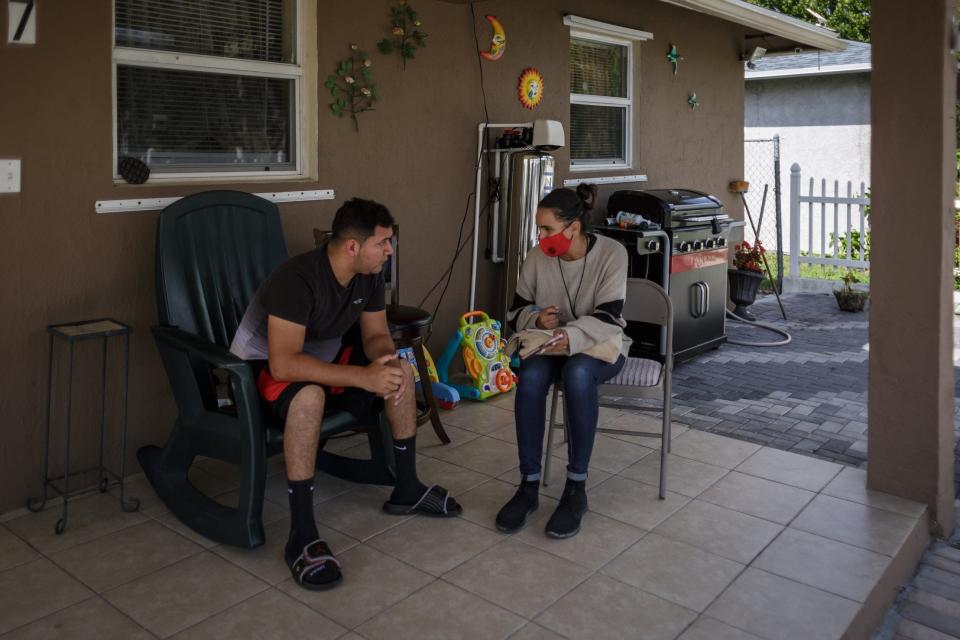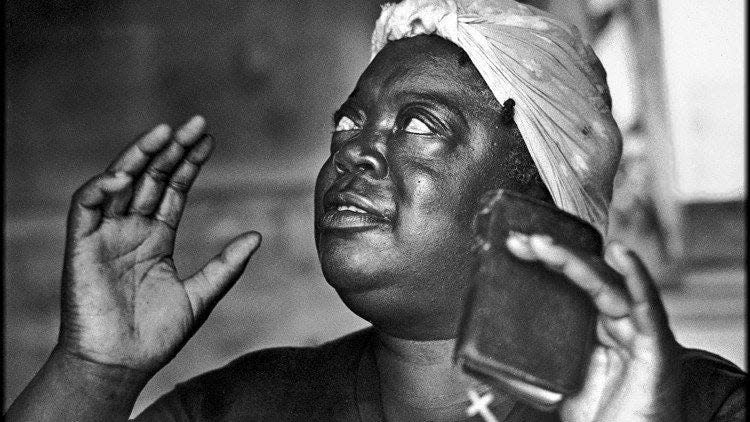Post/ProPublica investigation on sugar cane burning a finalist for the Pulitzer Prize
"Black Snow," The Palm Beach Post/ProPublica investigative series about sugarcane burning in western Palm Beach County, was named Monday a finalist for journalism’s most prestigious award, the Pulitzer Prize.
One of three projects to rise to finalist in the Local Reporting category of the Pulitzers, Black Snow was cited by the Pulitzer judges as “a distinguished example of coverage of significant issues of local or statewide concern, demonstrating originality and community connection.”
"Though today's announcement is but the latest in a string of recognition for the 'Black Snow' project, it is significant in that it puts a fine point on The Post's relentless efforts to give voice to all residents in our communities; especially those that cannot speak up for themselves," said Post Executive Editor Rick Christie.
"It is this type of work, be it large- or small-scale, that The Post strives to bring to our local readers every day."
Investigation, Part 1: The smoke comes every year. Sugar companies say the air is safe.
Investigation, Part 2: 'A complete failure of the state': Authorities didn't heed researchers’ calls to study health effects of burning sugar cane
Burning cut down in Brazil: Burning sugar cane pollutes communities of color in Palm Beach County. Brazil shows another way.
Pulitzer announcement: Black Snow named a Pulitzer finalist
The reporting and data collection effort was led by Palm Beach Post investigative reporter Lulu Ramadan (now with the Seattle Times). Ramadan worked with ProPublica reporters – designer and developer Ash Ngu, engagement reporter Maya Miller and video journalist Nadia Sussman. The Post’s Hannah Morse and ProPublica's Bianca Fortis also contributed.

Post photographers Thomas Cordy and Greg Lovett provided the visuals and photo editor Bill Ingram helped coordinate them with photo editors from ProPublica. Michael Mishak of ProPublica and Holly Baltz and Joel Engelhardt of The Post edited the package.
“Black Snow is the perfect example of high-impact local accountability reporting that Gannett strives to provide readers in all the communities we serve. The Palm Beach Post in partnership with ProPublica told a vital story that affected the health and well-being of local residents that would not have come to light if not for the investment of time, resources and talent from the Post’s staff.” said Jennifer Orsi, regional editor for Gannett’s Florida/Georgia region.
Ash that rains down during cane-burning season known as 'black snow'
For years, residents in Belle Glade, Pahokee and South Bay — an area known as the Glades — have breathed smoke from sugarcane fires, set for six months of every year as a pre-harvest practice to remove the leafy part of the stalk. Mothers and schools keep children indoors. Nebulizers, machines that ease breathing, are often in use. Inhalers are so intertwined with childhood that they come in toy-like cartoon-character dispensers.
Locals call the ash that rains down on the community during the burning season "black snow."
Nikki Fried: Palm Beach County Democrats urge Nikki Fried to expand sugar cane burning buffers
The lawsuit: Glades residents drop cane-burning lawsuit against sugar growers
Big sugar companies say the Glades, the largest sugarcane-producing region in the country, has some of the cleanest air in Florida.
In a unique citizens’ science experiment, locals worked with The Post and ProPublica to monitor the air at their homes with low-cost sensors. Using text bots, residents were able to communicate how the smoke and ash affected them in real time.
The Post and ProPublica found that the only air monitor in the Glades failed to capture the short bursts of pollution typical of sugarcane fires. And for years it was unfit to measure for air quality standards under the federal Clean Air Act, the landmark legislation that protects the public health and environment from pollution.
The project also uncovered the fact that the Florida Department of Health, despite the urging of its own researchers, never did a major study to determine conclusively whether the burning damaged residents' health.
After the reporting team started asking questions, Florida officials replaced the unfit monitor, and leading members of Congress called for the U.S. Environmental Protection Agency to investigate air monitoring in Florida and change national pollution standards.
This is the first Pulitzer finalist award for the Post based on reporting. Past awards have been for photography.
The Palm Beach Post's Pulitzer: Migration to Misery:

Post won Pulitzer Prize in 1970 for photo series in the Glades
In 1970, the newspaper won its only Pulitzer for “Migration to Misery,” for feature photography by Dallas Kinney. It, too, focused on the Glades, showing the hardships of migrant workers who struggled in the fields from North Carolina to western Palm Beach County more than 50 years ago. Kinney spent 2½ months telling the story through images of the “men, women and children of this nation’s oldest migrant stream.”
In 1993, The Post’s photography staff was a Pulitzer finalist for their coverage of Hurricane Andrew. In 2005, the newspaper was a finalist in breaking news photography for the staff’s “imaginative and panoramic coverage of hurricanes that struck Florida.” In 2007, photographer Gary Coronado was a finalist for “his vivid images of Central Americans who, desperate to enter America illegally, risk their lives leaping on Mexican freight trains rumbling northward.”
"Black Snow" has been recognized in other national contests for investigative reporting, digital design and presentation, and data journalism.
The Knight Science Journalism Program at MIT in March selected the series to win the 2022 Victor K. McElheny Award for local and regional science journalism. "Black Snow" was chosen from a field of more than 100 entries from newspapers, broadcasters and digital publications.
It won second place for the Philip G. Meyer Award for data journalism and a Sigma Award for data journalism in the single project category.
The series was honored as a semifinalist for the prestigious Goldsmith Prize for Investigative Reporting and won a bronze award in digital design in the environment and science category of the Society for News Design's annual contest.
The Sigma Awards is a global competition, and "Black Snow" was chosen as one of 12 winning projects from among 603 entries from 86 organizations in 28 countries.
It also recently won the Best of Gannett award in the investigative category. Gannett is the parent company of The Post and Palm Beach Daily News, and owns more than 100 daily newspapers.
This article originally appeared on Palm Beach Post: Pulitzer Prize finalist: Cane burning by Palm Beach Post/ProPublica

